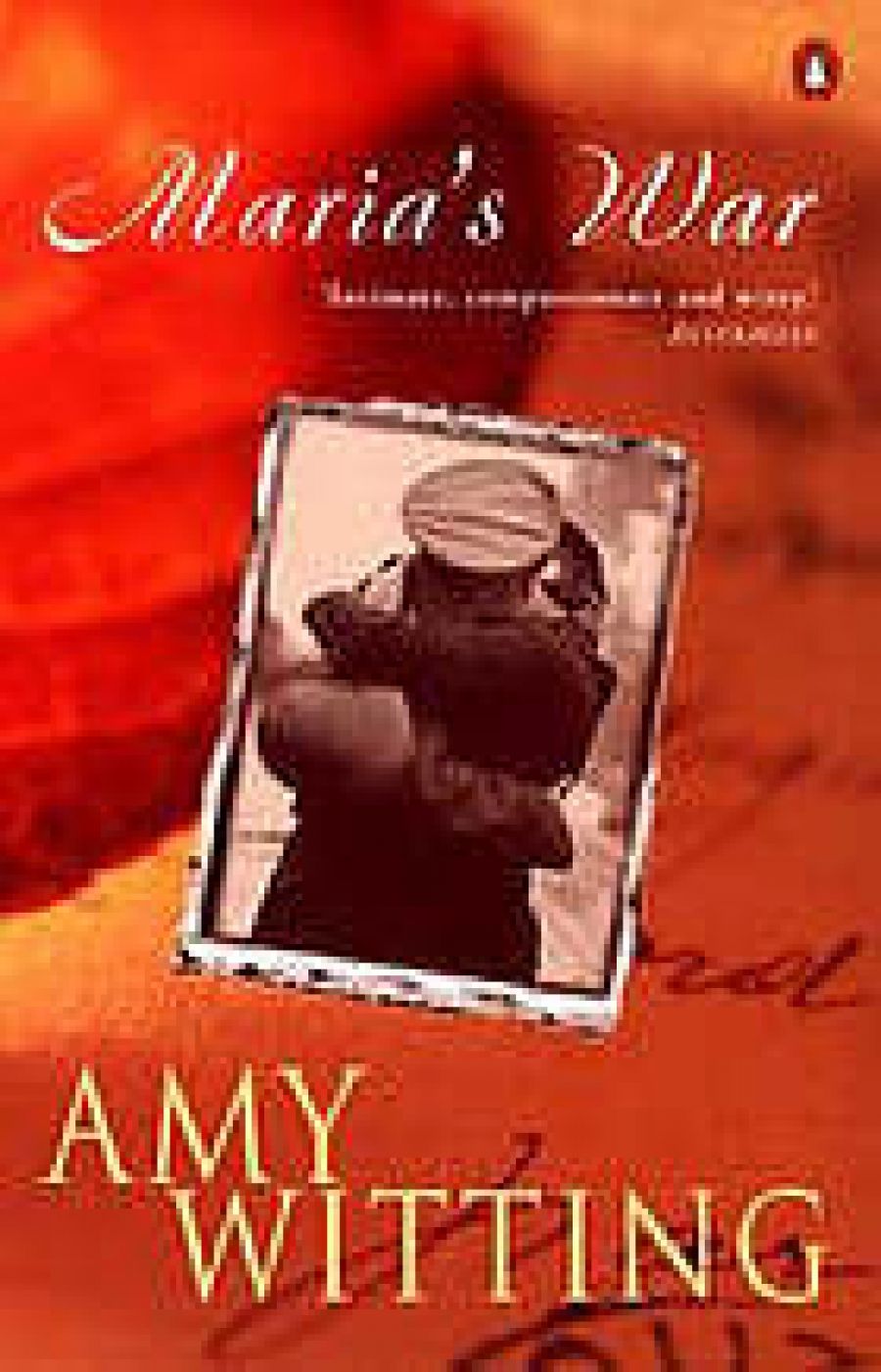
- Free Article: No
- Contents Category: Fiction
- Review Article: Yes
- Online Only: No
- Custom Highlight Text:
Ever since I heard Amy Witting speak at the recent Melbourne Festival, I have been thinking about her name, which is a chosen not a given name and therefore may be considered for its meanings. It occurred to me that there may be conscious artistry in her name as in her work. Amy: that must mean love. And Witting will be knowledge, awareness. The two an expression of the novelist’s desire. Her new book has both in good measure. Even more strongly here than in her earlier work, I have the sense of Witting’s voice speaking to us. Of course her medium is the characters through whom her plot works itself out, and the wise things spoken are the words of these characters, but I had an intimate sense of their being hers as well. You could extract her bons mots, her reflections, her epigrams, and make a nice little volume of the wit arid wisdom of Amy Witting. But of course you would lose a part of their power, and all the poignancy that context gives.
- Book 1 Title: Maria's War
- Book 1 Biblio: Viking, $24.95 pb, 254 pp
The story is set in an old people’s home. Witting does not make things easy for herself; I can imagine some readers wanting to have as little to do with the book as with its setting. They would of course be wrong. The people in Witting’s old people’s home may be fat and balding with lizard-like eyes (that’s Maria, one of the heroines), they may be blind and deaf and nasty-natured, they may be vague, boring, or full of anger, but they are human, all of them, and most of them have a moment of triumph.
The two heroines have a great many. And this small world is a microcosm of the larger one outside, with its own narratives of romance, and despair, and fragile happiness. ‘Old age is like religion’, the other of the heroines thinks, ‘it makes good people better and bad people worse’.
Erica is an unmarried retired schoolteacher who moves into Leicester Gardens when her dear friend dies. She’s not keen on the idea, but what else is she to do? She has understood her own invisibility. There’s no threat, she thinks: ‘Nobody was going to pay her any attention at all. That was the threat.’ But somebody does pay her attention, Maria, the stout and weary Lithuanian woman who recognises Erica’s wit and the kinship of taste, sense, intelligence that goes with it.
Out of this gentle friendship, Witting constructs a tale that brings the past alive in the present and discovers how the one has formed the other. Bitter stories of betrayal, of love and lust, of war and treachery have lost none of their power though time has passed and the protagonists grown old, but mostly neither kinder nor wiser. The young man who is writing down Maria’s story so her grandchildren will be able to read it says to her that she remembers fifty years ago as though it were last week, and Maria replies that she remembers it better. But she does not tell it all to him; there is the public narrative that she allows him to transcribe for her posterity, and the private narrative which he knows is there but cannot touch.
But she does tell Erica, and its becomes an important piece of information in another young woman’s search for family stories, family secrets; Witting understands the urge that possesses the new inhabitants of this country to know what terrible stories formed us in the old world we came from. And Margaret the young woman is a kind of surrogate daughter to Erica, closer to her in that kinship of spirit, so important to Witting, than is her own natural mother.
Erica is largely the spectator of these passions, but she is not without her own anger. When Maria confesses her adulterous love affair as a young woman in a displaced person’s camp, Erica reflects that she would have made a better wife than that, but knows that it is just another example of ‘the unjust distribution of human love’. Her wit comforts her, but coldly. She watches herself and behaves well, but it does her no good in the end. Life goes on, and if seeing its sad optimistic repeating patterns with a clear and ironic gaze is a fine way to cope it doesn’t offer much pleasure.
This is Witting writing at the height of her powers, with an often-bleak lucidity and in prose whose transparency belies its art. The least successful character, Margaret the twenty-three-year-old student, is a casualty though only a slight one of the book’s strength. The wonderful calm wise ironic voice of Amy Witting which she lends, appropriately transformed, to her two tough old women does not sit well in Margaret’s mouth. But that is a niggling point, Margaret is not what the book is about, it’s the ‘two old fates, sitting on our cloud and watching the young people live’, who are the real stars of this composed elegy of a novel.


Comments powered by CComment